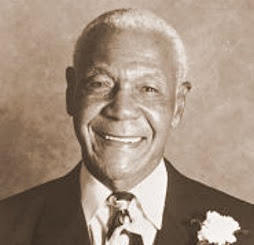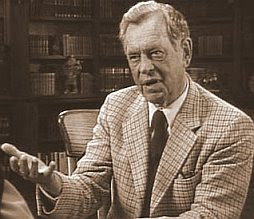In response to the number of my Readers who are of the Idealist (the definition of Plato’s term; “noetic” , and [following the observations of Hippocrates] known to Galen as “Cholerics”, and then, [a generation after Plato] Aristotle’s “Ethikos”) temperament, I am presenting a brief taste of Keirsey’s work describing the perspectives, intentions, and behaviors of Idealists in their interpersonal relationships with “Significant Others” of all kinds in life.
If you are indeed one of those said Idealists, I offer this insight in hope that their will be understanding, validation, and encouragement for you in it. Should you be one of the remaining 88% of humankind, it is my desire that these insights into the core of these special individuals will enhance your respect for as well as your understanding, acceptance, and embracing of them.
Should you be uncertain of which of the four major groups of personality/ temperament you are created as, I offer this LINK for you to click on… taking you to Keirsey’s site offering a quiz that will provide that definition for you.
Idealist Courtship
(a minimally-paraphrased excerpt from David Keirsey’s
Please Understand Me II, [ISBN 1-885705-02-6] )
The Idealists’ desire that their relationships be deep and meaningful (that is, intense, enduring, and all-important in their lives) is very much in evidence in the way they go about dating. They do not usually choose to play the field to any great extent, but prefer to go out with one person at a time and to explore the potential for special closeness in each relationship. Never casual or occasional about dating, they typically look past surface relations to more deeply felt connections, and they lose interest, rather quickly, with dates centered around social events and physical activities. Idealists can enjoy this skin-deep sort of date for a while, of course, but they usually try to find their own kind of enjoyment as the evening wears on. At parties, for example, they will often look for a quiet corner where they can talk with their date (or someone else) on a more personal, intimate level. And at amusement parks or sporting events, they will eventually separate themselves mentally from the rides, the sights, and the action, and begin to observe the people around them, wondering about their personalities and engaging in imaginings about their personal lives.
Indeed (and this is a surprise to others of other temperament styles), Idealists would usually rather talk with their dates than do things or go places, although chatting about concrete, literal, or factual things doesn’t particularly interest them either. They want to talk about abstract matters… ideas, insights, personal philosophies, spiritual beliefs, dreams, goals, family relationships, altruistic causes, and the like… inwardly-felt topics that break through social surfaces and connect two people heart-to-heart. Idealists love to talk about movies or novels that have touched them deeply, but they don’t want to describe the plot so much as discuss what the story suggests between the lines, the aesthetic or moral issues involved, and how the characters’ lives symbolize their own experience or the wider experience of mankind. They will talk enthusiastically about art, music, and poetry, particularly about a work’s significance to them. The ability to communicate comfortably with their dates in this imaginative, meaningful way most often determines whether or not the Idealist can become serious in a given relationship.
Finding that rare person with whom they can share their inner world is difficult for Idealists, a painful process of trial and error, and often they vow not to date at all for periods of time rather than go through the search. For Idealists, dating someone means far more than physical fun or social experience; it is an opening of their heart and mind to the other person, in some cases a baring of their soul, and carries with it both a promise and an expectation of deep regard and mutual understanding. And because they are offering so much of themselves to the other (and expecting so much in return) Idealists are highly sensitive to rejection, and can be deeply hurt when spurned by another, or when feeling compelled to break off the relationship themselves. The trauma of breaking up can be so difficult for Idealists, at times, that they will avoid getting involved with others for fear of things not working out, or, at the other extreme, they will remain in a relationship longer than they should just to put off the soul-hurting experience of rejection.
However, once the special person comes their way (the man or woman of their dreams), Idealists can be carried away with their feelings, and give almost all of their attention to pursuing the relationship. For the Idealist, not just a compatible marriage but an all-consuming, undying passion is in the offing, and so the courtship becomes the center of his or her world. Just as the Possible rather than the Actual lures Idealists in other parts of their lives, so do the possibilities in relationships inspire them, and they see in each new relationship the potential for bringing them the perfect love that will fulfill them completely. Idealists have a flair for dramatizing their courtships, and they spare no effort or flight of imagination to win the heart of their loved one. Often a story-book flavor permeates their courtship behavior, and they are not afraid of using imaginative language, even poetry, and quotations, to give voice to their feelings. Idealists can also be romantic when expressing love through gifts, though they are likely to present the gift in private, and to select with extraordinary care something with special or even symbolic meaning… a beloved piece of music, a favorite book of fiction or poetry, or a treasured picture. In a sense, Idealists go about turning their courtships into works of art, which is not surprising, since one of the arts at which they are most skilled is that of creating the romantic relationship.
Idealist courtships are marked not only by romantic gestures, but also by the idealization of the relationship. In the early stages of a romance, both Idealist males and females are likely to be blind to flaws in their beloved, and to believe in the illusion that life together will proceed happily ever after (although the details of this “happily ever after” are rarely explored in depth). Idealists hold dear a compelling though often vague inner-vision of what their ideal mate will be like, and they tend to project this vision of perfection into their all-too-human loved ones. Thus, at the slightest suggestion, Idealists will see soulfulness and poetic sensitivity in the people that they have fallen in love with… whether or not they are, indeed, soulful or poetic. At the same time, Idealists believe that everyone has the potential or spiritual growth, and in many cases they use their love to develop this latent mystical side of their mates. Needless to say, most human beings cannot live up to such romantic ideals, nor will they often sit still to have their spirituality nurtured in such a way. Many Sanguine/Hedonic/Artisans (38 % of the population) react with good-natured sarcasm, many Melancholic/Proprietary/Guardians (38% of the population) seem impatient with such foolishness, and the view of the remaining 12% of the population made up of the Phlegmatic/Dialectical/Rationals is skeptical, at best, about this soulfulness. Idealists who attempt to make their loved ones live up to their ideals are, sooner or later, faced with disillusionment in their relationships.
Although many Idealists are reluctant to admit it, such a romantic projection… and such disillusionment… are most often a problem in cases where there is a strong sexual attraction. Idealists can be deeply divided about their sexual feelings. On the one hand, they insist that sex must be an expression of love rather than lust. Even the word “sex” seems a little crude to the Idealist; “love” puts the relationship on a higher plain. But make no mistake, for all of their “other-worldliness”, Idealists are very intimate, warm, and even passionate people who are highly responsive to physical beauty and sexual attraction. Now, the problem for Idealists is that, with their rich idealistic projections of life, they tend to idealize physical beauty and to project their own poetic nature into the object of their sexual attraction. They also tend to romanticize sex as soulful communion. In other words, Idealists tend to fall in love with a dream of beauty and passion, only to be rather painfully disillusioned by the flesh-and-blood imperfections which they eventually encounter in their loved ones. Many Idealists are not fully prepared for the moment of truth when they come to see the imperfect reality of their lovers, and some relationships are unable to survive the truth. Fortunately, both male and female Idealists have a capacity for deep affection and caring over and above sexual expression, and out of this capacity can grow lasting, intimate relationships.
With the presentation of these insights, I trust that we can come to know ourselves, those around us (most especially those who look to us for encouragement, validation, and acceptance), and, from that knowledge enjoy more fully an intimacy born of respectful appreciation for the marvelous creation that we each are. To that end, I remain, as always, Your faithful Friend and Servant.
Saturday, December 09, 2006
Subscribe to:
Post Comments (Atom)

Unless expressly stated, all original material, of whatever nature, created by J. Michael Brown (John-Michael) and included in this weblog and any related pages, including the weblog's archives is licensed under a Creative Commons Attribution-NonCommercial-NoDerivs 2.5 License.



























1 comment:
I too am an Idealist. It's amazing how apt a description this is. Although it isn't always easy to be an Idealist I wouldn't trade it for anything in the world.
Post a Comment